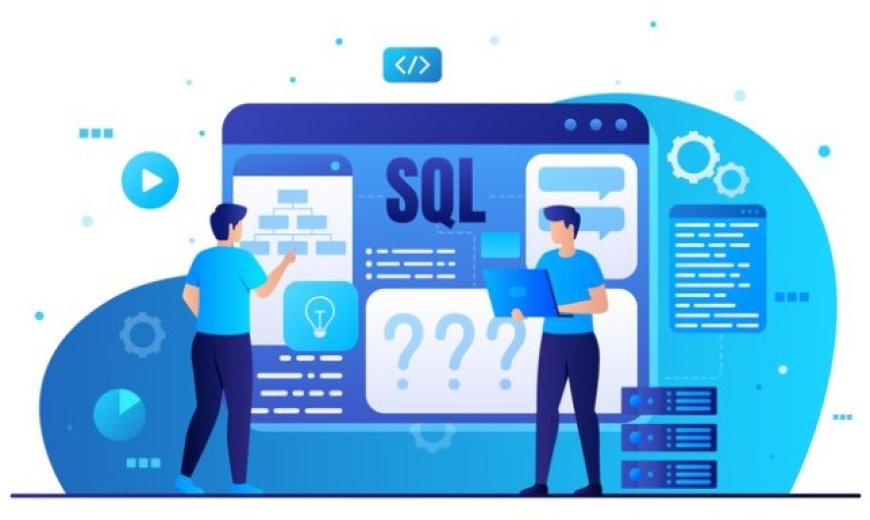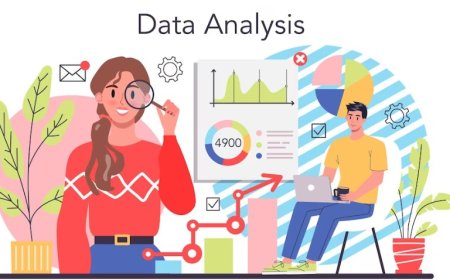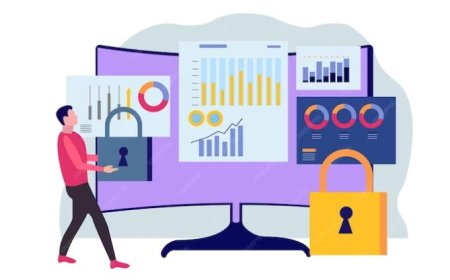Your Friendly Guide to Understanding and Using SQL for Analytics
The power of SQL for analytics with our friendly guide. Learn essential skills and techniques to leverage SQL effectively for data analysis.

In the field of data analytics, SQL, or Structured Query Language, is like the superhero language that helps us talk to databases. Imagine databases as organized file cabinets storing tons of data. Now, SQL is the secret code that lets us ask these database questions and get meaningful answers.
SQL, pronounced as "sequel," is the language used to manage and manipulate relational databases. It's the glue that connects us to a goldmine of information. This structured language allows us to interact with databases in a way that makes sense, helping us pull out specific data, sort it neatly, or even combine information from different tables.
Now, why is SQL such a big deal in data analytics? Well, it's the go-to tool for extracting valuable insights from mountains of data. Whether you're a data scientist, analyst, or just a curious soul, SQL empowers you to dig into databases and unravel the stories hidden within. It's not just a tool; it's a key that unlocks the potential of data, making it accessible and actionable for everyone in the data-driven adventure. So, buckle up, because understanding SQL is like getting a VIP pass to the coolest party in the data world!
Challenges and Complexity in Data Analytics
-
Data Variety: Imagine dealing with data that speaks different languages. That's what data variety is like. Sometimes, information comes in spreadsheets, other times in fancy databases. Making sense of this mix can be like trying to understand a conversation in a language you've never heard before.
-
Complex Queries: Think of a query as a question you ask the data. Now, some questions are straightforward, like asking your friend what they had for lunch. But in data analytics, questions can get seriously complicated. It's like asking your friend what they had for lunch, dinner, and snacks, and you want it all sorted by calories.
-
Efficient Analysis: Imagine you're on a treasure hunt, and instead of finding the treasure, you find a gazillion chests, each with a tiny clue. Analyzing all that can be a headache. In data analytics, finding the valuable info efficiently amidst heaps of data is the real challenge.
-
Constant Learning: Data doesn't sit still; it's always evolving. This means analysts need to keep upgrading their skills. It's like being in a never-ending school where the lessons keep changing, and you've got to stay on your toes.
-
Data Security: Picture your diary with all your secrets. Now imagine that diary is the data of a big company. Keeping all that information safe and sound is crucial but can be as tricky as guarding a treasure chest in a pirate's cave.
Despite these challenges, the thrill of solving data puzzles keeps analysts going. It's like being on a never-ending quest, and every challenge is a new level to conquer in the exciting world of data analytics.
What are the fundamental SQL commands for querying databases?
Basic SQL Commands:
SQL is like the alphabet of data querying. These basic commands are the building blocks you need to start your SQL journey:
- SELECT: It's like a magic word. You use SELECT to pick the columns of data you want to see. If a database is a giant book, SELECT is how you choose the pages you want to read.
-
FROM: This tells SQL where to look for the data. If the database is our book, FROM is like specifying which bookshelf to search.
-
WHERE: Imagine you have a thousand photos, and you want only the ones with cats. WHERE helps you filter data. It's like telling SQL to show only the rows that match specific conditions.
-
ORDER BY: Ever tried organizing your messy room? ORDER BY is like tidying up your data. You can sort it in ascending or descending order based on a column, making it easier to understand.
-
GROUP BY: When you have a big pile of similar things and want to know how many of each, GROUP BY is your buddy. It groups similar data, helping you see patterns.
Advanced SQL Operations:
-
JOIN Operations: Imagine you have two lists - one with names and another with phone numbers. JOIN helps you combine them based on a common factor, like matching names. It's like merging two puzzle pieces that fit together.
-
Subqueries: Sometimes, you need answers to questions within questions. Subqueries are like mini-queries inside a big one. They help you break down complex problems into manageable parts.
Data Manipulation:
Now that you know how to pick and choose data, let's talk about changing it:
-
INSERT: Adding new data is like planting seeds in your garden. INSERT helps you add new rows to your table.
-
UPDATE: Imagine you wrote the wrong birthdate on a card. UPDATE is like grabbing your eraser. It lets you change existing data.
-
DELETE: If you have a bunch of old clothes you don't need, DELETE helps you get rid of them. It removes rows from your table.
-
Transactions: Sometimes, you need to make multiple changes at once. Transactions are like a safety net. They help you group changes so that either all of them happen, or none do.
Optimizing SQL Queries:
Getting data is one thing; getting it fast is another. These tips help you speed things up:
-
Indexing: Think of an index in a book. It helps you find the information faster. In SQL, indexing is like creating a map to speed up data retrieval.
-
Query Optimization: Imagine you're at a buffet, and instead of going to each dish individually, you have a plan to get everything efficiently. Query optimization is like having a strategy to fetch data without wasting time.
Exploring How SQL Powers Real-World Data Analytics
Using SQL in real-life situations makes the whole idea of data analytics come alive. It's like taking what you've learned and using it to solve actual problems. Let's explore how SQL plays a crucial role in various situations:
-
Managing Business Data: SQL is the backbone for businesses that need to organize and access their data efficiently. Imagine a store with tons of products and sales information. SQL helps sort and retrieve specific details, making it a go-to tool for managing business data.
-
E-commerce Inventory Management: In the online shopping world, SQL ensures that when you search for a specific product, the website shows you accurate information. It's like the wizard behind the curtain, pulling out the right data to display the products you're looking for.
-
Banking Transactions: Banks deal with massive amounts of data daily. SQL is their silent hero, making sure your transactions are recorded accurately, and your balance is always up to date. It's like the guardian angel ensuring your money is in the right place.
-
Healthcare Record-keeping: Picture a hospital with records for thousands of patients. SQL helps organize this data so that doctors and nurses can quickly find the information they need. It's like a reliable filing system for crucial healthcare records.
-
Customer Relationship Management (CRM): Businesses want to keep their customers happy. SQL helps in creating and managing customer databases, making it easier to understand their preferences and behavior. It's like having a personal assistant that remembers every customer's likes and dislikes.
-
Social Media Analytics: Ever wonder how social media platforms show you posts and ads tailored to your interests? SQL is at play here. It helps analyze user data to provide a personalized experience. It's like having a friend who knows exactly what you want to see on your feed.
-
Supply Chain Optimization: For companies dealing with supply chains, SQL is the go-to for tracking inventory, managing orders, and ensuring products reach their destinations on time. It's like the GPS guiding goods from the warehouse to your doorstep.
-
Educational Institutions: Schools and universities use SQL to manage student records, grades, and course information. It's like the academic superhero ensuring that all the data related to students and courses is in order.
-
Government Databases: Government agencies use SQL to handle vast amounts of data related to citizens, public services, and more. It's like the digital architect behind government operations, ensuring data is organized and accessible when needed.
-
Research and Scientific Data: In the world of research, SQL is crucial for managing and analyzing scientific data. It's like the researcher's toolkit, helping them organize, query, and derive insights from complex datasets.
Knowing how to apply SQL in real-life situations is like having a practical toolkit for solving everyday problems. It's more than just knowing the technical commands; it's about using them to make things better in different industries. SQL, in this sense, is like a language that turns into actual benefits for businesses, organizations, and even our day-to-day activities. It's the tool that helps streamline processes, manage data efficiently, and ultimately, make our lives a bit easier. So, beyond the code, it's about understanding how SQL fits into the real world and brings tangible advantages to the table.
Mastering SQL opens the door to a world of data possibilities. We've touched on key concepts like using SELECT, JOIN, and filtering data that act as your toolkit. But here's the secret sauce: continuous learning and practice. Like any language, SQL gets better with practice. It's not about memorizing, but about getting hands-on. So, grab a database and start experimenting. Remember, the real magic happens when you take your SQL skills to the real world. Apply what you've learned in actual data analytics projects. It's like riding a bike; you learn by doing. Whether you're managing business data, improving e-commerce experiences, or diving into healthcare records, SQL is your trusted companion. So, keep learning, keep practicing, and let SQL be your guide in unraveling the stories hidden within the vast world of data analytics.






























































